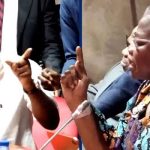Governors of states governed by the People’s Democratic Party (PDP) have instituted a suit at the Supreme Court, challenging the six-month suspension of Rivers Governor, Siminalayi Fubara.
Listed as defendants in the suit are President Bola Tinubu and the National Assembly.
Persecondnews reported that President Tinubu suspended Fubara, his deputy Ngozi Odu, and the state’s House of Assembly members for six months, following a state of emergency declaration in the state on March 18, and the appointment of a sole administrator.
The National Assembly their weight behind Tinubu’s decision.
However, the governors of Bauchi, Adamawa, Bayelsa, Enugu, Osun, Plateau, and Zamfara states are challenging the president’s authority, questioning whether he has the power to suspend officials.
The seven state governors who deemed the suspension unconstitutional are petitioning the Supreme Court, through their Attorney-Generals, to rule that the President lacks the authority to suspend democratically elected governors and deputy governors, citing Sections 1(2), 5(2), and 305 of the 1999 Constitution (as amended).
The governors also urged the apex court to declare that the President has no powers to suspend a democratically elected House of Assembly of a state pursuant to Sections 192 (4) (6) and 305 of the Constitution of the Federal Republic of Nigeria 1999 (as amended).
They are seeking a court declaration that “the suspension of Gov. Siminalaye Fubara, his deputy, and members of the Rivers State House of Assembly was unconstitutional, unlawful, and in gross violation of the provisions of the 1999 Constitution (as amended).”
The governors contended that President Tinubu exceeded his constitutional authority by suspending a democratically elected governor and appointing a sole administrator.
They urged the Court to nullify the appointment of the sole administrator appointed to govern the state.
The governors equally contested the legitimacy of the National Assembly’s voice votes, arguing that this process violates constitutional protocols.
They argued that the declaration of a state of emergency in Rivers State by the defendants did not comply with the constitutional requirements set out in Section 305 of the 1999 Constitution (as amended).
The governors further argued that Tinubu’s proclamation of a state of emergency in Rivers State did not meet the required conditions and procedures, and was instead motivated by reasons not authorized by the Constitution.
They contended that the National Assembly’s voice vote approval of the state of emergency was invalid, emphasizing that the Constitution requires a two-thirds majority vote from each legislative chamber.
They urged the Supreme Court to grant the following relief: “An order nullifying the proclamation of a state of emergency in Rivers State made by the first defendant and wrongfully approved by the second defendant.
“An order restraining the defendant, by himself, his servants, agents, and privies, from implementing the unlawful suspension of the governor and deputy governor of Rivers State.
“An order restraining the defendant, by himself, his servants, agents, and privies, from interfering in any manner whatsoever with the execution by the governor and deputy governor of Rivers State of their constitutional and statutory duties, as well as their electoral mandate.
“An order restraining the defendant from attempting the suspension of any other governor of any state in Nigeria, particularly the plaintiffs, or from interfering with or undermining their constitutional and statutory duties.”
Persecondnews had reported that Rivers State has been embroiled in political turmoil for nearly two years, fueled by a power struggle between former Governor Nyesom Wike and his successor, Fubara, culminating in a political impasse.
In response to the brewing crisis, Tinubu had on March 18 declared a state of emergency in the state, suspending Fubara, his deputy, and all members of the House of Assembly for six months.
Tinubu also appointed retired Admiral Ibok-Ete Ibas as the Sole Administrator for state.






















Leave a comment